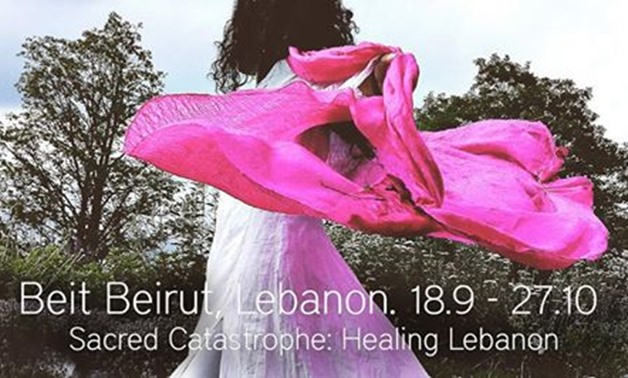
Banner via zenaelkhalil Facebook
CAIRO – 20 September 2017: Lebanese artist Zena El Khalil uses her art to create powerful activist messages, aiming to encourage love and compassion, in her exhibition, “Sacred Catastrophe: Healing Lebanon,” which runs from September 18 until October 27.
In Beit Beirut, a place of war now being reopened as a museum, Khalil has begun planting an artificial forest of 17,000 trees, representing the number of people believed to have vanished during Lebanon’s long civil war between 1975-1990. The building is located in what was once known as “The Green Line,” a warzone that was used as a strategic point by snipers.
Khalil’s forest is a visually powerful piece of art, combining nature, history and activism. Khalil chose the aesthetic of plants to also honor the forests that once grew where Beit Beirut now stands. Also, included are various sculptures, paintings, and multimedia works involving photography, sound and video.
Khalil’s exhibition is all about healing; how life can still re-grow even in a place so damaged. Her current art focuses on healing and art’s place within the process, particularly in the greater political context of Lebanon and its wars. Khalil focuses especially on the ways that art can help bring positive change within the world.
Talking to the National, Khalil states her ultimate goal is to create a public space that allows for discussion about trauma, memory and peace.
“The war ended and the next day everyone was back at work,” she says. “There was no reconciliation, there was no healing, and then 20 years went by. I don’t see people addressing it publicly because we don’t talk about our pain in public. We don’t talk about our period of pain.”
Comments
Leave a Comment